The Scribe in the Woods, Irish Poetry
The Scribe in the Woods, Irish Poetry
‘Over me green branches hang
A blackbird leads the loud song
Above my pen-lined booklet
I hear a fluting bird-throng
The cuckoo pipes a clear call
Its dun cloak hid in deep dell:
Praise to the Gods for their gifts
That in woodland I write well’
Monday Poetry, In the winter forest, Emma Funnell

In the winter forest
Emma Funnell
The trees move in the Winter Forest,
They sway with the gental breeze.
Naked as the leaves fall to the ground,
And the water will slowly freeze.

The forest casts shadows on the snowy grounds,
As the light of a thousand stars shine through.
The angels dance and sing in the snow,
As the sky turns to a midnight blue.
One angel sings of the moon and stars,
Another sings of the sun.

They play in the trees and howl with the wind,
Their wings glistening as through the forest they gracefully run.
By day the Winter Forest is quiet and peaceful,
But by night it’s alive with games and song.
The angels, fairies, moon and stars,
Beckon you to come along.
Join in with their dance in praise of the night,
Run with the wolves fast and free.
When the sun comes up they will say goodnight,
Silent again the Winter Forest will be!
EMMA Funnell
Fallen Leaves, a poem by :Robert William Service
Why should I be the first to fall
Of all the leaves on this old tree?
Though sadly soon I know that all
Will lose their hold and follow me.
While my birth-brothers bravely blow,
Why should I be first to go?
Why should I be the last to cling
Of all the leaves on this bleak bough?
I’ve fluttered since the fire of Spring
And I am worn and withered now.
I would escape the Winter gale
And sleep soft-silvered by a snail.
When swoop the legions of the snow
To pitch their tents in roaring weather
We fallen leaves will lie below
And rot rejoicingly together;
And from our rich and dark decay
Will laugh our brothers of the May.
Robert William Service
Time and Eternity By : Emily Dickenson, (1896)
One need not be a chamber to be haunted,
One need not be a house;
The brain has corridors surpassing
Material place.
Far safer, of a midnight meeting
External ghost,
Than an interior confronting
That whiter host.
Far safer through an Abbey gallop,
The stones achase,
Than, moonless, one’s own self encounter
In lonesome place.
Ourself, behind ourself concealed,
Should startle most;
Assassin, hid in our apartment,
Be horror’s least.
The prudent carries a revolver,
He bolts the door,
O’erlooking a superior spectre
More near.
Monday Poetry : The Ocean Shipwreck Lord Byron (1788–1824)
The Ocean Shipwreck
Lord Byron (1788–1824)
(From Don Juan)
’T WAS twilight, for the sunless day went down
Over the waste of waters; like a veil,
Which, if withdrawn, would but disclose the frown
Of one who hates us, so the night was shown,
And grimly darkled o’er their faces pale,
And hopeless eyes, which o’er the deep alone
Gazed dim and desolate; twelve days had Fear
Been their familiar, and now Death was here.
* * * * *
At half past eight o’clock, booms, hencoops, spars,
And all things, for a chance, had been cast loose,
That still could keep afloat the struggling tars,
For yet they strove, although of no great use:
There was no light in heaven but a few stars;
The boats put off o’ercrowded with their crews;
She gave a heel, and then a lurch to port,
And, going down head-foremost,—sunk, in short.
Then rose from sea to sky the wild farewell!
Then shrieked the timid, and stood still the brave;
Then some leaped overboard with dreadful yell,
As eager to anticipate their grave;
And the sea yawned around her like a hell,
And down she sucked with her the whirling wave,
Like one who grapples with his enemy,
And strives to strangle him before he die.
And first one universal shriek there rushed,
Louder than the loud ocean, like a crash
Of echoing thunder; and then all was hushed,
Save the wild wind and the remorseless dash
Of billows; but at intervals there gushed,
Accompanied with a convulsive splash,
A solitary shriek—the bubbling cry
Of some strong swimmer in his agony.
Kilkenny Landscape images : Rain clouds return , July 15th 2018
Return of Rain
The cloud drops on my lip
On the tip of my nose
I get hugged by the drip
Ah, rain is so close!
The heat is now a story
The balm seems so near
Regaining its lost glory
Surely the monsoon is here!
Tip-tap on my windowpane
Dark floaters are busy
Pouring on men and women
Life is once more easy!
I’m glad the rain is back
To awaken the soil’s green
Wipe out the summer’s crack
Dance on my parched roof tin!
Tip-tap on my windowpane
Dark floaters are busy
Pouring on men and women
Life is once more easy!
I’m glad the rain is back
To awaken the soil’s green
Wipe out the summer’s crack
Dance on my parched roof tin!
Skyfall – Ulysses By Alfred, Lord Tennyson
Ulysses
By Alfred, Lord Tennyson
It little profits that an idle king,
By this still hearth, among these barren crags,
Matched with an aged wife, I mete and dole
Unequal laws unto a savage race,
That hoard, and sleep, and feed, and know not me.
I cannot rest from travel: I will drink
Life to the lees: All times I have enjoy’d
Greatly, have suffer’d greatly, both with those
That loved me, and alone, on shore, and when
Thro’ scudding drifts the rainy Hyades
Vext the dim sea: I am become a name;
For always roaming with a hungry heart
Much have I seen and known; cities of men
And manners, climates, councils, governments,
Myself not least, but honour’d of them all;
And drunk delight of battle with my peers,
Far on the ringing plains of windy Troy.
I am a part of all that I have met;
Yet all experience is an arch wherethro’
Gleams that untravell’d world whose margin fades
For ever and forever when I move.
How dull it is to pause, to make an end,
To rust unburnish’d, not to shine in use!
As tho’ to breathe were life! Life piled on life
Were all too little, and of one to me
Little remains: but every hour is saved
From that eternal silence, something more,
A bringer of new things; and vile it were
For some three suns to store and hoard myself,
And this gray spirit yearning in desire
To follow knowledge like a sinking star,
Beyond the utmost bound of human thought.
This is my son, mine own Telemachus,
To whom I leave the sceptre and the isle,—
Well-loved of me, discerning to fulfil
This labour, by slow prudence to make mild
A rugged people, and thro’ soft degrees
Subdue them to the useful and the good.
Most blameless is he, centred in the sphere
Of common duties, decent not to fail
In offices of tenderness, and pay
Meet adoration to my household gods,
When I am gone. He works his work, I mine.
There lies the port; the vessel puffs her sail:
There gloom the dark, broad seas. My mariners,
Souls that have toil’d, and wrought, and thought with me—
That ever with a frolic welcome took
The thunder and the sunshine, and opposed
Free hearts, free foreheads—you and I are old;
Old age hath yet his honour and his toil;
Death closes all: but something ere the end,
Some work of noble note, may yet be done,
Not unbecoming men that strove with Gods.
The lights begin to twinkle from the rocks:
The long day wanes: the slow moon climbs: the deep
Moans round with many voices. Come, my friends,
it is not too late to seek a newer world.
Push off, and sitting well in order smite
The sounding furrows; for my purpose holds
To sail beyond the sunset, and the baths
Of all the western stars, until I die.
It may be that the gulfs will wash us down:
It may be we shall touch the Happy Isles,
And see the great Achilles, whom we knew.
Tho’ much is taken, much abides; and tho’
We are not now that strength which in old days
Moved earth and heaven, that which we are, we are;
One equal temper of heroic hearts,
Made weak by time and fate, but strong in will
To strive, to seek, to find, and not to yield.
Friday Poetry – Old Bones, by -Gary Snyder
Old Bones
Out there walking round, looking out for food,
a rootstock, a birdcall, a seed that you can crack
plucking, digging, snaring, snagging,
barely getting by,
no food out there on dusty slopes of scree—
carry some—look for some,
go for a hungry dream.
Deer bone, Dall sheep,
bones hunger home.

Out there somewhere
a shrine for the old ones,
the dust of the old bones,
old songs and tales.
What we ate—who ate what—
how we all prevailed.
Gary Snyder
Friday Poetry – River Ghosts, By: Chris Smedbakken
River Ghosts, By: Chris Smedbakken
Chris Smedbakke web site
Gazing into the Stars
Wishing for what there could never be
“All of the stars I dedicate to thee,
the spirits of the forest and the songs of the sea”
She, the River Ghost of his long lost dreams,
singing mournful songs among the silent streams
Pale, dark eyes uplit by white moonlight beams
Beware, the fate of her is not what is seems
Frozen flowers, sunset eves
Deathcold breeze in the icy leaves
Autumn goddess surrenders and then she leaves
for Lady Frost to conquer a world that grieves
Her the River gave in to and turned to ice
Restless fay gave up a scream towards the pale blue skies
Fooled by a vision of Winter in disguise,
she lies down to final sleep in the white of her despise
He, the sun, weeps silently at her lonely grave
The lost dreams did not die with the River wave
Missing, longing for the water’s song, the happiness it gave
The sun mourned the frozen River, that its warm light could not save
About Chris
I am that kind of person who would rather give you a story than an introduction. You would be hard put to find something that doesn’t inspire me. Feed me a theme and I will give you back a text, it’s almost as simple as that.
More … About Chris Smedbakke
Elegy Written in a Country Churchyard By Thomas Gray
Elegy Written in a Country Churchyard
By Thomas Gray
The curfew tolls the knell of parting day,
The lowing herd wind slowly o’er the lea,
The plowman homeward plods his weary way,
And leaves the world to darkness and to me.
Now fades the glimm’ring landscape on the sight,
And all the air a solemn stillness holds,
Save where the beetle wheels his droning flight,
And drowsy tinklings lull the distant folds;
Save that from yonder ivy-mantled tow’r
The moping owl does to the moon complain
Of such, as wand’ring near her secret bow’r,
Molest her ancient solitary reign.
Beneath those rugged elms, that yew-tree’s shade,
Where heaves the turf in many a mould’ring heap,
Each in his narrow cell for ever laid,
The rude forefathers of the hamlet sleep.
The breezy call of incense-breathing Morn,
The swallow twitt’ring from the straw-built shed,
The cock’s shrill clarion, or the echoing horn,
No more shall rouse them from their lowly bed.
For them no more the blazing hearth shall burn,
Or busy housewife ply her evening care:
No children run to lisp their sire’s return,
Or climb his knees the envied kiss to share.
Oft did the harvest to their sickle yield,
Their furrow oft the stubborn glebe has broke;
How jocund did they drive their team afield!
How bow’d the woods beneath their sturdy stroke!
Let not Ambition mock their useful toil,
Their homely joys, and destiny obscure;
Nor Grandeur hear with a disdainful smile
The short and simple annals of the poor.
The boast of heraldry, the pomp of pow’r,
And all that beauty, all that wealth e’er gave,
Awaits alike th’ inevitable hour.
The paths of glory lead but to the grave.
Nor you, ye proud, impute to these the fault,
If Mem’ry o’er their tomb no trophies raise,
Where thro’ the long-drawn aisle and fretted vault
The pealing anthem swells the note of praise.
Can storied urn or animated bust
Back to its mansion call the fleeting breath?
Can Honour’s voice provoke the silent dust,
Or Flatt’ry soothe the dull cold ear of Death?
Perhaps in this neglected spot is laid
Some heart once pregnant with celestial fire;
Hands, that the rod of empire might have sway’d,
Or wak’d to ecstasy the living lyre.
But Knowledge to their eyes her ample page
Rich with the spoils of time did ne’er unroll;
Chill Penury repress’d their noble rage,
And froze the genial current of the soul.
Full many a gem of purest ray serene,
The dark unfathom’d caves of ocean bear:
Full many a flow’r is born to blush unseen,
And waste its sweetness on the desert air.
Some village-Hampden, that with dauntless breast
The little tyrant of his fields withstood;
Some mute inglorious Milton here may rest,
Some Cromwell guiltless of his country’s blood.
Th’ applause of list’ning senates to command,
The threats of pain and ruin to despise,
To scatter plenty o’er a smiling land,
And read their hist’ry in a nation’s eyes,
Their lot forbade: nor circumscrib’d alone
Their growing virtues, but their crimes confin’d;
Forbade to wade through slaughter to a throne,
And shut the gates of mercy on mankind,
The struggling pangs of conscious truth to hide,
To quench the blushes of ingenuous shame,
Or heap the shrine of Luxury and Pride
With incense kindled at the Muse’s flame.
Far from the madding crowd’s ignoble strife,
Their sober wishes never learn’d to stray;
Along the cool sequester’d vale of life
They kept the noiseless tenor of their way.
Yet ev’n these bones from insult to protect,
Some frail memorial still erected nigh,
With uncouth rhymes and shapeless sculpture deck’d,
Implores the passing tribute of a sigh.
Their name, their years, spelt by th’ unletter’d muse,
The place of fame and elegy supply:
And many a holy text around she strews,
That teach the rustic moralist to die.
For who to dumb Forgetfulness a prey,
This pleasing anxious being e’er resign’d,
Left the warm precincts of the cheerful day,
Nor cast one longing, ling’ring look behind?
On some fond breast the parting soul relies,
Some pious drops the closing eye requires;
Ev’n from the tomb the voice of Nature cries,
Ev’n in our ashes live their wonted fires.
For thee, who mindful of th’ unhonour’d Dead
Dost in these lines their artless tale relate;
If chance, by lonely contemplation led,
Some kindred spirit shall inquire thy fate,
Haply some hoary-headed swain may say,
“Oft have we seen him at the peep of dawn
Brushing with hasty steps the dews away
To meet the sun upon the upland lawn.
“There at the foot of yonder nodding beech
That wreathes its old fantastic roots so high,
His listless length at noontide would he stretch,
And pore upon the brook that babbles by.
“Hard by yon wood, now smiling as in scorn,
Mutt’ring his wayward fancies he would rove,
Now drooping, woeful wan, like one forlorn,
Or craz’d with care, or cross’d in hopeless love.
“One morn I miss’d him on the custom’d hill,
Along the heath and near his fav’rite tree;
Another came; nor yet beside the rill,
Nor up the lawn, nor at the wood was he;
“The next with dirges due in sad array
Slow thro’ the church-way path we saw him borne.
Approach and read (for thou canst read) the lay,
Grav’d on the stone beneath yon aged thorn.”
A Dream sunset, Cardigan bay, Wales. A Poem : Ode By Arthur O’Shaughnessy
We are like the Dreamer …….
Ode
By Arthur O’Shaughnessy
We are the music-makers,
And we are the dreamers of dreams,
Wandering by lone sea-breakers
And sitting by desolate streams;
World losers and world forsakers,
On whom the pale moon gleams:
Yet we are the movers and shakers
Of the world for ever, it seems.
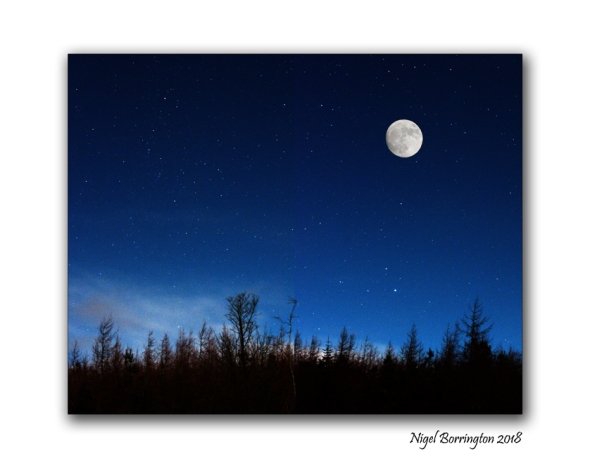
With wonderful deathless ditties
We build up the world’s great cities.
And out of a fabulous story
We fashion an empire’s glory:
One man with a dream, at pleasure,
Shall go forth and conquer a crown;
And three with a new song’s measure
Can trample an empire down.
We, in the ages lying
In the buried past of the earth,
Built Nineveh with our sighing,
And Babel itself with our mirth;
And o’erthrew them with prophesying
To the old of the new world’s worth;
For each age is a dream that is dying,
Or one that is coming to birth.
Poetry from Lord of the Rings – Return of the King, Bilbo’s Last Song (At the Grey Havens)
Bilbo’s Last Song (At the Grey Havens)
Day is ended, dim my eyes,
But journey long before me lies.
Farewell, friends! I hear the call.
The ship’s beside the stony wall.
Foam is white and waves are grey;
beyond the sunset leads my way.
Foam is salt, the wind is free;
I hear the rising of the sea.
Farewell, friends! The sails are set,
the wind is east, the moorings fret.
Shadows long before me lie,
beneath the ever-bending sky,
but islands lie behind the Sun
that I shall raise ere all is done;
lands there are to west of West,
where night is quiet and sleep is rest.
Guided by the Lonely Star,
beyond the utmost harbour-bar,
I’ll find the heavens fair and free,
and beaches of the Starlit Sea.
Ship my ship! I seek the West,
and fields and mountains ever blest.
Farewell to Middle-earth at last.
I see the star above my mast!
The poem does not itself actually appear in The Return of the King , the
last volume of the The Lord of the Rings trilogy, but takes place at it’s
very end, when many of the principal heroes of the War of the Ring prepare
to set sail into the West, to leave Middle Earth forever: among them the
great wizard Gandalf the White; Frodo Baggins, the great Ringbearer; and
his elder Bilbo, who found the Ring so long before.
” ‘Well, here at last, dear friends,” [said Gandalf], “on the shores of
the Sea comes the end of our fellowship in Middle-earth. Go in peace! I
will not say: do not weep; for not all tears are an evil.’
Then Frodo kissed Merry and Pippin, and last of all Sam, and went aboard;
and the sails were drawn up, and the wind blew, and slowly the ship slipped
away down the long grey firth; and the light of the glass of Galadriel that
Frodo bore glimmered and was lost.
Man’s Coiled Beacon by Rosie Howe
Man’s Coiled Beacon
Rosie Howe
A gleaming halo of light
Rotates around its fixed staff
Like a relentless lasso
Stretching across a chalky sea,
Covering all it touches
With an adorning hope
That cannot be seized.
At night, its light pulsates
Like a beacon, a constant blaze
Passing over a jaded path.
No footprints are left from
Its endless wanderings,
Repeatedly retracing its steps,
It coils. Built to forget.
The forgetful lantern swings,
Its pendulum never ceasing,
Gliding over lighted buoys,
And boat hulls, and
Dancing on the oily wings of
Cormorants as they plunge
Down to the dark depths
Monday Poetry : The Valley of Unrest By Edgar Allan Poe
The Valley of Unrest
By Edgar Allan Poe
Once it smiled a silent dell
Where the people did not dwell;
They had gone unto the wars,
Trusting to the mild-eyed stars,
Nightly, from their azure towers,
To keep watch above the flowers,
In the midst of which all day
The red sun-light lazily lay.
Now each visitor shall confess
The sad valley’s restlessness.
Nothing there is motionless—
Nothing save the airs that brood
Over the magic solitude.
Ah, by no wind are stirred those trees
That palpitate like the chill seas
Around the misty Hebrides!
Ah, by no wind those clouds are driven
That rustle through the unquiet Heaven
Uneasily, from morn till even,
Over the violets there that lie
In myriad types of the human eye—
Over the lilies there that wave
And weep above a nameless grave!
They wave:—from out their fragrant tops
External dews come down in drops.
They weep:—from off their delicate stems
Perennial tears descend in gems.
Great Poems : Solitude a Poem By – Ella Wheeler Wilcox
Solitude
By Ella Wheeler Wilcox
Laugh, and the world laughs with you;
Weep, and you weep alone;
For the sad old earth must borrow its mirth,
But has trouble enough of its own.
Sing, and the hills will answer;
Sigh, it is lost on the air;
The echoes bound to a joyful sound,
But shrink from voicing care.

Rejoice, and men will seek you;
Grieve, and they turn and go;
They want full measure of all your pleasure,
But they do not need your woe.
Be glad, and your friends are many;
Be sad, and you lose them all,—
There are none to decline your nectared wine,
But alone you must drink life’s gall.
Feast, and your halls are crowded;
Fast, and the world goes by.
Succeed and give, and it helps you live,
But no man can help you die.
There is room in the halls of pleasure
For a large and lordly train,
But one by one we must all file on
Through the narrow aisles of pain.
A look at : Solitude by Ella Wheeler Wilcox
Her most popular poem, Ella Wheeler Wilcox’s “Solitude” is about the relationship between the individual and the outside world. The poem is built on a series of contrasting conditions: “Laugh, and the world laughs with you;/Weep and you weep alone.” At first, the words may seem like a guide advising the reader to maintain a positive attitude. It becomes clear, however, that the poem is more complex than that, operating as a road map for the difficult realities of life. At the core of Wilcox’s philosophy is a belief that we all exist in a state of solitude. Wilcox wrote this poem after encountering a grieving woman on her way to Madison, Wisconsin. Despite her efforts, Wilcox was not able to comfort the woman over her loss. Distraught, Wilcox returned to her hotel and after looking at her own lonely face in the mirror, began to write this poem. The context of the poem suggests that what follows is not a parade of moral platitudes but a series of choices. If you laugh, sing, rejoice, or feast, the world will be drawn to you. If you weep, sigh, fast, or grieve, the world will abandon you. After all, in the end, “one by one we must all file on.” The poem is neither an anthem of positive thinking nor a dour account of existential loneliness. It is an invitation to move through the world with practicality and self-reliance.
 Ella Wheeler Wilcox (November 5, 1850 – October 30, 1919)
Ella Wheeler Wilcox (November 5, 1850 – October 30, 1919)
Poems for Christmas – A Country Boy in Winter By Sarah Orne Jewett
A Country Boy in Winter
By Sarah Orne Jewett
The wind may blow the snow about,
For all I care, says Jack,
And I don’t mind how cold it grows,
For then the ice won’t crack.
Old folks may shiver all day long,
But I shall never freeze;
What cares a jolly boy like me
For winter days like these?
Far down the long snow-covered hills
It is such fun to coast,
So clear the road! the fastest sled
There is in school I boast.
The paint is pretty well worn off,
But then I take the lead;
A dandy sled’s a loiterer,
And I go in for speed.
When I go home at supper-time,
Ki! but my cheeks are red!
They burn and sting like anything;
I’m cross until I’m fed.
You ought to see the biscuit go,
I am so hungry then;
And old Aunt Polly says that boys
Eat twice as much as men.
There’s always something I can do
To pass the time away;
The dark comes quick in winter-time—
A short and stormy day
And when I give my mind to it,
It’s just as father says,
I almost do a man’s work now,
And help him many ways.
I shall be glad when I grow up
And get all through with school,
I’ll show them by-and-by that I
Was not meant for a fool.
I’ll take the crops off this old farm,
I’ll do the best I can.
A jolly boy like me won’t be
A dolt when he’s a man.
I like to hear the old horse neigh
Just as I come in sight,
The oxen poke me with their horns
To get their hay at night.
Somehow the creatures seem like friends,
And like to see me come.
Some fellows talk about New York,
But I shall stay at home.
Great Poems : A New Start. – by Bernard Shaw
A New Start. – Poem by Bernard Shaw
I have wiped the slate clean,
No more reminders from the past.
Memories of what I have been,
Have vanished at long last.
I look forward to my future new,
Where all is territory strange.
Soon I will be among the few,
That plans their life at long range.
I see my life laid out at my feet,
New friends shall rally at my call.
They will be the first I will greet,
At this my welcoming ball.
Soon all memories will depart,
Of a past left well behind.
I will get off to a new start,
With the best of mankind.
Bernard Shaw
Four Poems about Autumn (Katherine Towers,Emily Brontë, Robert Louis Stevenson and Robert Frost)
Whim Wood
Katherine Towers
into the coppery halls
of beech and intricate oak
to be close to the trees
as they whisper together
let fall their leaves,
and we die for the winter
From Katherine Towers’ The Remedies
Emily Brontë
Fall, leaves, fall; die, flowers, away;
Lengthen night and shorten day;
Every leaf speaks bliss to me
Fluttering from the autumn tree.
I shall smile when wreaths of snow
Blossom where the rose should grow;
I shall sing when night’s decay
Ushers in a drearier day.
Autumn Fires
Robert Louis Stevenson
In the other gardens
And all up in the vale,
From the autumn bonfires
See the smoke trail!
Pleasant summer over,
And all the summer flowers,
The red fire blazes,
The grey smoke towers.
Sing a song of seasons!
Something bright in all!
Flowers in the summer,
Fires in the fall!
Nothing Gold Can Stay
Robert Frost
Nature’s first green is gold,
Her hardest hue to hold.
Her early leaf’s a flower;
But only so an hour.
Then leaf subsides to leaf.
So Eden sank to grief,
So dawn goes down to day.
Nothing gold can stay.
The Water Replies – Luke Kennard
Luke Kennard
The Water Replies
Maybe we have washed our hands
and drunk deep and swam
and think we know her,
but water’s reputation goes before her like a flood:
she does not suffer fools or gadflies.
Therefore I have prepared some questions.
Where do you get your ideas & your tide from?
Don’t say the moon – that’s really pretentious.
But as I clamber down the coast
I lose my footing and spend our allotted time
tossed around in her backwash,
pummeled by tiny stones.
When I am baptised I ask the water
Where have the demons gone?
Were they hiding behind the H, the 2 or the O?
I emerge finally able to see that I have not changed,
that I can of myself do nothing, that water decides.
On the towpath behind the church
I wring out my jacket. I ask the water:
Will you convey these thoughts away?
These itching hatreds, toothache of jealousy,
These squalid appetites and dog thirsts?
Just as far as the next city will do.
The ripples of the moon’s tablature.
When was the last time you cried, and why?
I ask the water. I ask the water:
Do you have plans later?
Friday Poetry : The Genesis of the Butterfly, by Victor Hugo
The dawn is smiling on the dew that covers
The tearful roses; lo, the little lovers
That kiss the buds, and all the flutterings
In jasmine bloom, and privet, of white wings,
That go and come, and fly, and peep and hide,
With muffled music, murmured far and wide.
Ah, the Spring time, when we think of all the lays
That dreamy lovers send to dreamy mays,
Of the fond hearts within a billet bound,
Of all the soft silk paper that pens wound,
The messages of love that mortals write
Filled with intoxication of delight,
Written in April and before the May time
Shredded and flown, playthings for the wind’s playtime,
We dream that all white butterflies above,
Who seek through clouds or waters souls to love,
And leave their lady mistress in despair,
To flit to flowers, as kinder and more fair,
Are but torn love-letters, that through the skies
Flutter, and float, and change to butterflies
Friday Poetry : The fisherman and his boat, Raghu Menon
The fisherman and his boat
Patiently he untangles the net
Standing calmly
Brazing the breeze
On the dancing boat
With an oar on its side
Which is cooled by the
Waters of the river..
The sun will set in an hour or so
And he has to finish his catch
Before the dusk
And back to his hut
Where his wife will
Waiting eagerly
To make the dinner
With the fresh catch
Another day
Another catch
The river but
Remains the same
Greeting the fishermen
Who roam the river
With their boats
Raghu Menon
Morning poetry : My fading dreams – an Island in the morning sea
In those early moment as I awake
Visions of warm and gentle golden seas
a cool morning breeze.
Fading images of a island I do not know
Draining images of islands on which I want mind to stand.
An island that constantly haunts my dreams
particularly when reality falls apart at the seams.
An island in the spinning – turning sun.
An Island I long to understand
yet in the morning how far away its realty seems.
Can we only grasp life in our dreams
it slips through our fingers at the light of dawn.
you fade away and now are gone.
I walk along this beach
hot melted glass and cool flowing gasses meet.
Come tonight when I watch the setting of the sun
and wonder if on my Island of dreams, again a clear vision will come?
Nigel …..
Evening Poem : By Alice Oswald
We have many old forgotten farms around county Kilkenny, its hard to know just how old they could be?
There are so many memories lost in these places, so many working days following by family evenings resting out in the fields and the yards ……
Evening Poem : By Alice Oswald
Old scrap-iron foxgloves
rusty rods of the broken woods
what a faded knocked-out stiffness
as if you’d sprung from the horsehair
of a whole Victorian sofa buried in the mud down there
or at any rate something dropped from a great height
straight through flesh and out the other side
has left your casing pale and loose and finally
just a heap of shoes
they say the gods being so uplifted
can’t really walk on feet but take tottering steps
and lean like this closer and closer to the ground
which gods?
it is the hours on bird-thin legs
the same old choirs of hours
returning their summer clothes to the earth
with the night now
as if dropped from a great height
falling

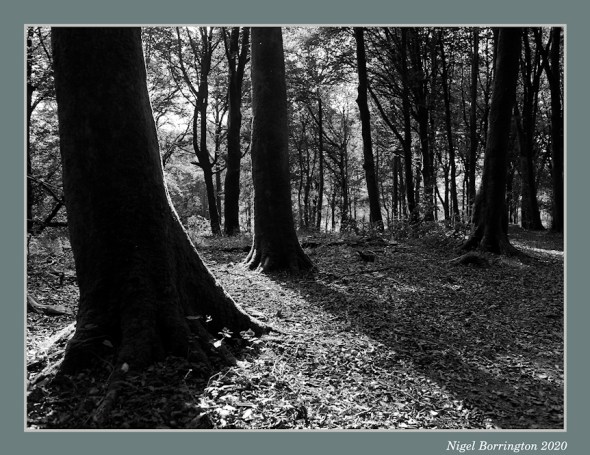







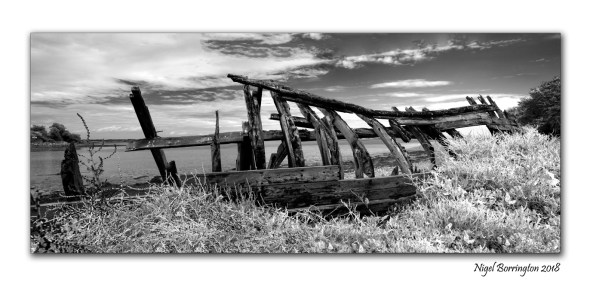
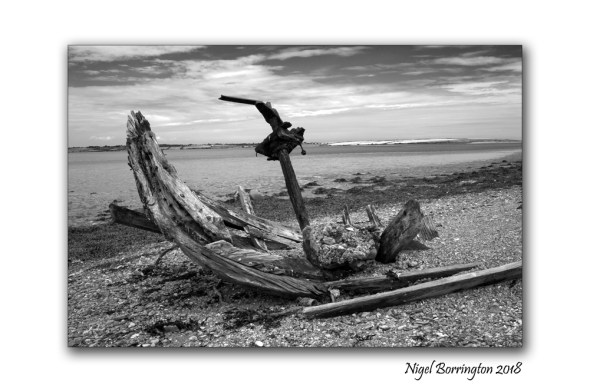




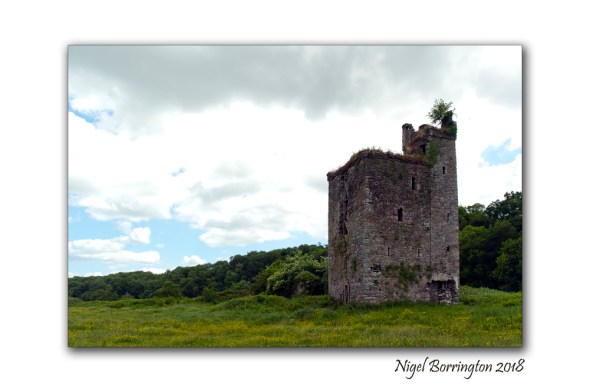

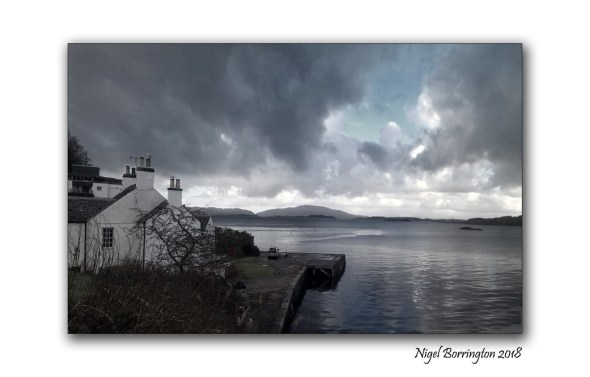




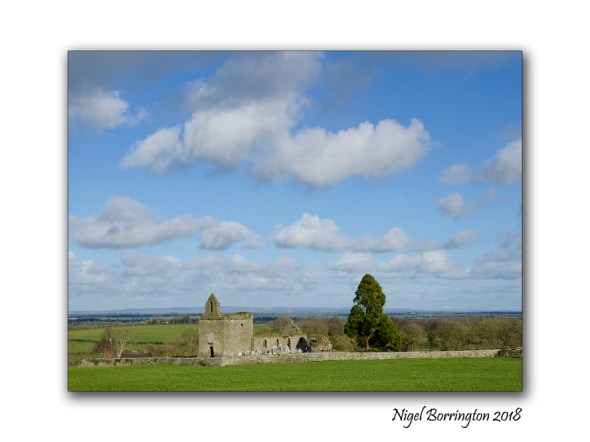


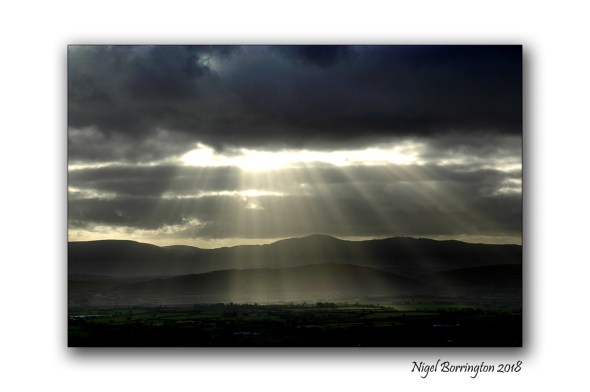



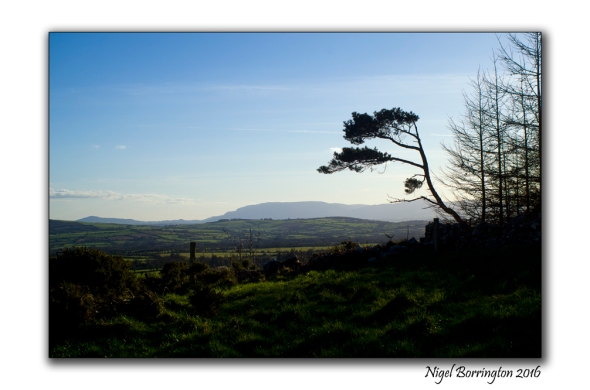


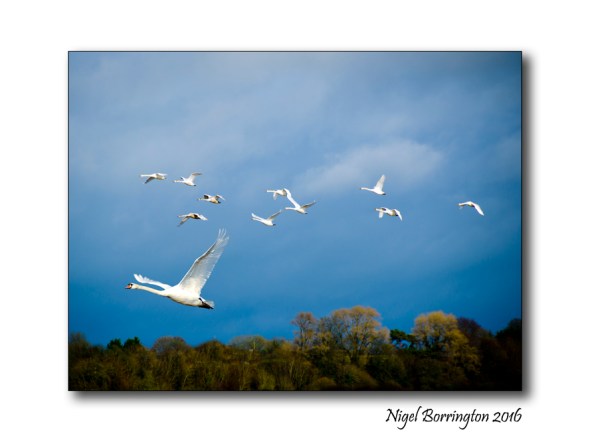
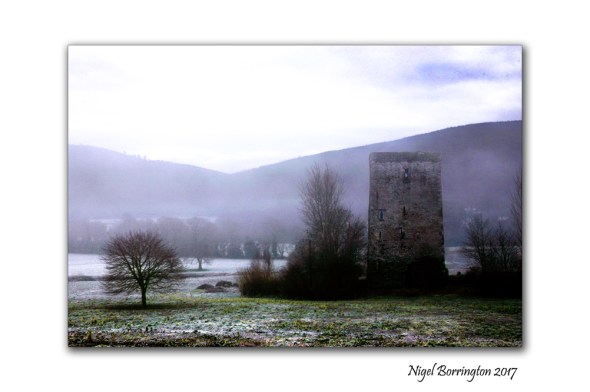



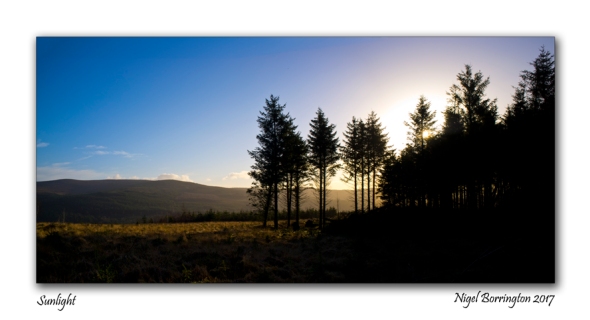



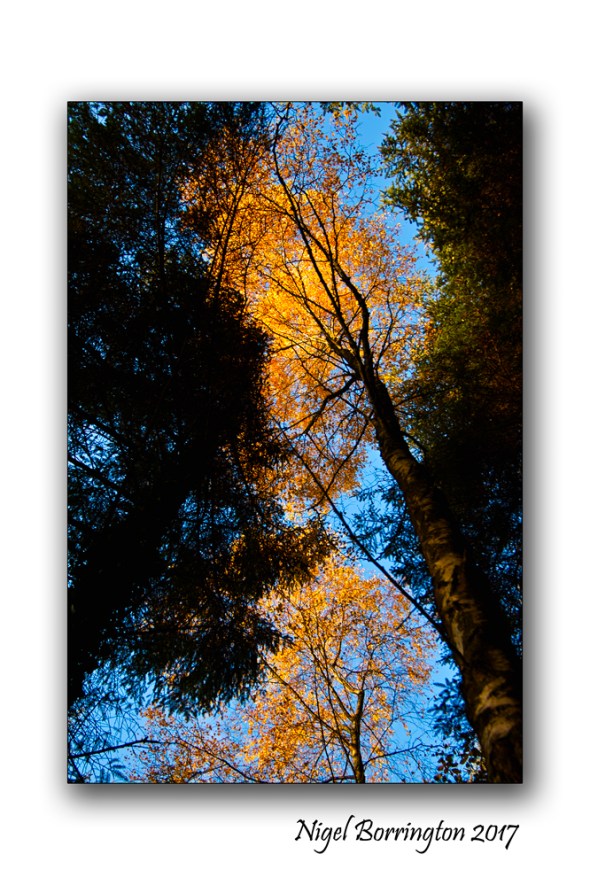
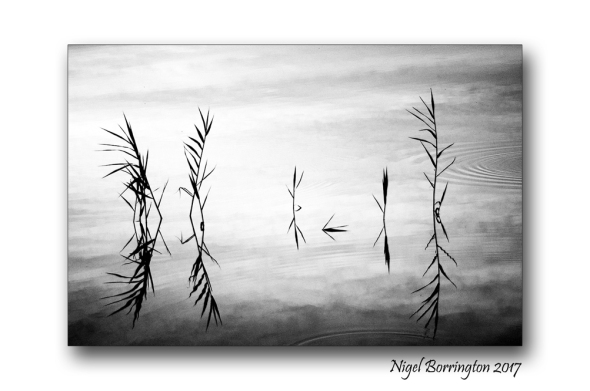


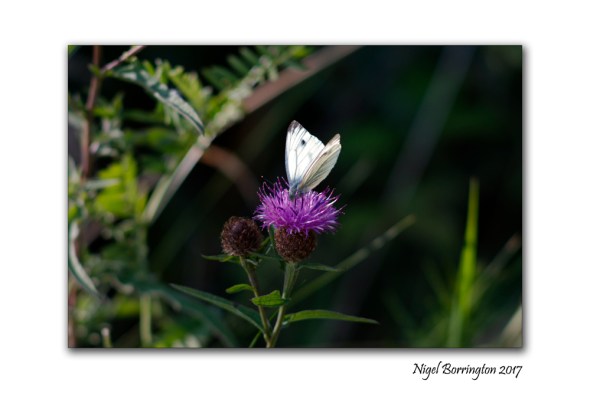
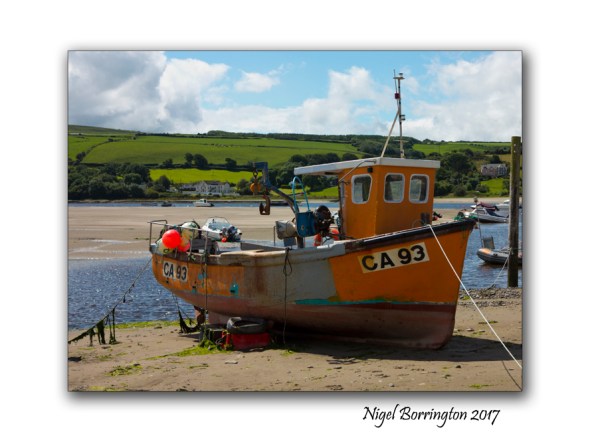




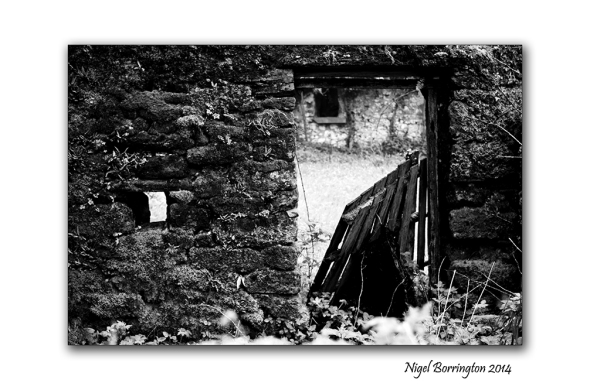

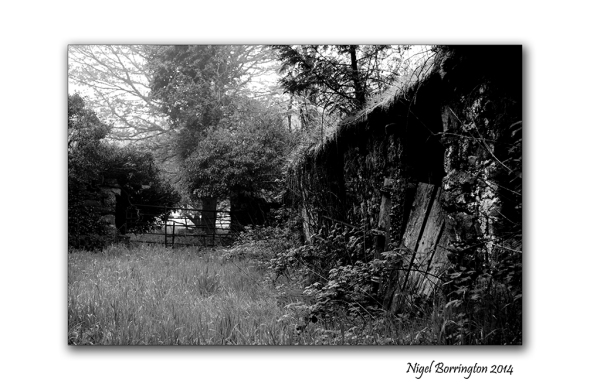
You must be logged in to post a comment.